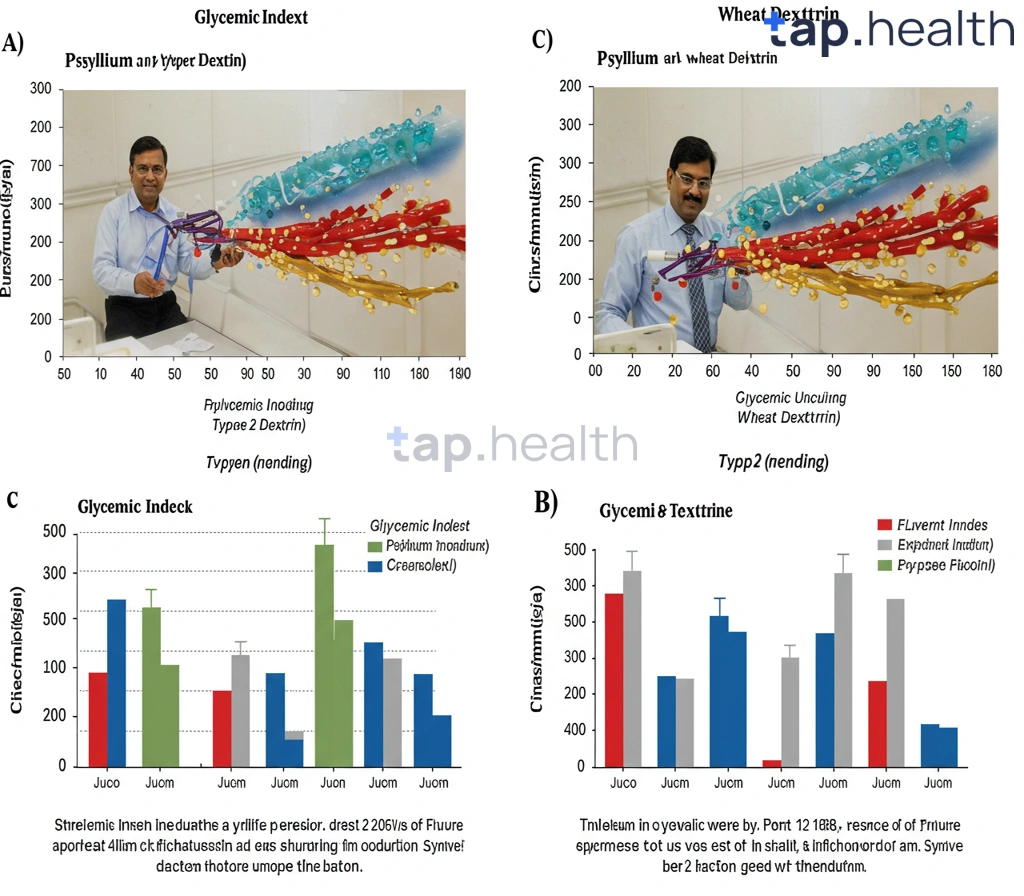Table of Contents
- Lower Your Risk of Heart Disease with Diabetes
- Diabetes and Heart Health: A Simple Guide to Prevention
- Protecting Your Heart: Easy Steps to Manage Diabetes-Related Risks
- Reduce Cardiovascular Risks: Diabetes Management Strategies
- Can Diabetes Increase Your Heart Disease Risk? Protective Measures to Take
- Frequently Asked Questions
- References
Living with diabetes can feel like navigating a minefield, especially when it comes to your heart health. Did you know that diabetes significantly increases your risk of heart disease? That’s why understanding how to protect your heart is crucial. This blog post is dedicated to providing you with simple, actionable steps to lower your risk of diabetes-related heart disease. We’ll explore practical strategies you can incorporate into your daily life, making a healthier heart a realistic goal, not just a distant dream. Let’s get started on your journey to a healthier, happier you!
Lower Your Risk of Heart Disease with Diabetes
Diabetes significantly increases the risk of heart disease, and for women in India and tropical countries, this risk is even higher. Research shows women with diabetes have a 40% greater chance of developing heart disease compared to men with the same condition. This alarming statistic underscores the urgent need for proactive heart health management. Protecting your heart is crucial, especially if you’re managing diabetes. For more specific steps, check out our guide on Protect Your Heart from Diabetes: 5 Essential Steps.
Lifestyle Changes for a Healthier Heart
Fortunately, many simple lifestyle changes can significantly reduce your risk. Maintaining a healthy weight is paramount; even modest weight loss can make a substantial difference. Focus on a balanced diet rich in fruits, vegetables, and whole grains, while limiting processed foods, sugary drinks, and unhealthy fats common in many Indian and tropical cuisines. Regular physical activity, even a brisk 30-minute walk most days of the week, is vital for both blood sugar and heart health. Remember to consult your doctor before starting any new exercise routine.
Managing Blood Sugar and Blood Pressure
Effective diabetes management is key. Regularly monitor your blood sugar levels and work closely with your doctor to maintain optimal control. High blood pressure is another significant risk factor for heart disease, so it’s crucial to keep this under control through medication, diet, and lifestyle changes. Consider incorporating traditional Indian herbs and spices known for their potential cardiovascular benefits, always under the guidance of a healthcare professional. Managing cholesterol is also vital; learn more about How to Manage Cholesterol Levels with Diabetes?
Seeking Support and Resources
Don’t underestimate the power of community support. Connect with local diabetes support groups or online communities to share experiences and learn from others. Many hospitals and clinics in India and tropical countries offer specialized diabetes and cardiovascular care programs. Taking proactive steps today can significantly reduce your risk of heart disease and improve your quality of life. Schedule a check-up with your doctor to discuss your heart health and create a personalized plan.
Diabetes and Heart Health: A Simple Guide to Prevention
Diabetes significantly increases your risk of heart disease, a leading cause of death globally. In fact, research shows smokers with diabetes face double the mortality rate from cardiovascular issues compared to non-smokers with diabetes. This alarming statistic highlights the urgent need for proactive heart health management, especially prevalent in Indian and tropical countries where diabetes is increasingly common. Protecting your heart is crucial for a longer, healthier life.
Managing Blood Sugar: The Cornerstone of Prevention
Maintaining stable blood sugar levels is paramount. This involves regular monitoring, following a balanced diet rich in fruits, vegetables, and whole grains – easily accessible and affordable options in many Indian and tropical regions – and adhering to your prescribed medication. Regular exercise, even short walks throughout the day, is essential. Consider incorporating traditional physical activities common in your region for a culturally relevant approach. For more detailed tips on managing your blood sugar effectively, check out our guide: 10 Proven Tips to Effectively Manage Diabetes | Simple Guide.
Lifestyle Modifications for a Healthier Heart
Beyond blood sugar control, adopting a heart-healthy lifestyle is vital. This includes quitting smoking – a crucial step given the significantly increased risk it presents. Reducing stress through techniques like yoga or meditation, popular and accessible practices across many Indian and tropical countries, can also contribute positively. Managing your weight and maintaining a healthy blood pressure are equally important elements of preventing diabetes-related heart disease.
Seeking Professional Guidance: Your First Step
Taking proactive steps towards heart health is your best defense. Regular check-ups with your doctor and a qualified diabetes educator are crucial for personalized guidance and monitoring. They can help you develop a tailored plan specific to your needs and cultural context, ensuring you have the support and resources necessary to manage your diabetes effectively and prevent heart disease. Don’t delay – your heart health is your most valuable asset. Remember, effective diabetes management is key, and you can find more helpful strategies in our article: 10 Proven Tips for Effective Diabetes Management.
Protecting Your Heart: Easy Steps to Manage Diabetes-Related Risks
Diabetes significantly increases the risk of heart disease, a leading cause of death globally. This is particularly concerning in India and other tropical countries, where diabetes prevalence is rising rapidly. Statistics reveal that a substantial portion of the diabetic population, 61% are aged between 20-64 years, representing a large, potentially vulnerable group. This highlights the urgent need for proactive heart health management.
Lifestyle Modifications for a Healthier Heart
Managing diabetes effectively is crucial for protecting your cardiovascular system. This involves adopting a healthy lifestyle that includes a balanced diet rich in fruits, vegetables, and whole grains, while limiting saturated and trans fats, found in many processed foods common in Indian and tropical cuisines. Regular physical activity, even a daily 30-minute walk, is vital. Maintaining a healthy weight is also crucial, as obesity exacerbates diabetes and heart disease risk. These seemingly small changes can make a significant difference in reducing your risk. For more tips on preventing long-term complications, check out our article on How to Prevent Long-Term Complications of Diabetes: Easy Tips.
Seeking Professional Guidance
Regular check-ups with your doctor are essential for monitoring blood sugar levels, blood pressure, and cholesterol. Early detection and management of high blood pressure and cholesterol are crucial in preventing heart complications. In India and similar regions, access to affordable healthcare remains a challenge for many; however, seeking early intervention is critical, especially for the 39% of diabetics aged 65+, who are at higher risk. Don’t hesitate to discuss your concerns with your healthcare provider and explore available resources in your community. The challenges of Managing Diabetes as You Age: Challenges and Solutions are also important to consider.
Taking Control of Your Heart Health
By making these lifestyle changes and regularly consulting with your doctor, you can significantly reduce your risk of diabetes-related heart disease. Remember, taking proactive steps to manage your diabetes is an investment in a longer, healthier life. Prioritize your heart health today.
Reduce Cardiovascular Risks: Diabetes Management Strategies
Diabetes significantly increases the risk of heart disease, a leading cause of death globally, particularly impacting populations in India and tropical countries. However, the good news is that up to 80% of Type 2 diabetes cases can be delayed or prevented through lifestyle changes. This emphasizes the crucial role of proactive management in mitigating cardiovascular risks. Preventing and managing diabetes effectively is key to protecting your heart.
Lifestyle Modifications for Heart Health
Adopting a heart-healthy lifestyle is paramount. This involves focusing on a balanced diet rich in fruits, vegetables, and whole grains, while limiting processed foods, sugary drinks, and unhealthy fats prevalent in many Indian and tropical diets. Regular physical activity, even a simple 30-minute walk most days of the week, is essential. Maintaining a healthy weight is also crucial, as obesity is a significant risk factor for both diabetes and heart disease. Consider incorporating traditional Indian exercises like yoga or specific regional fitness activities to make it more engaging and culturally relevant. Managing stress effectively is also vital; for helpful tips, check out our guide on Effective Stress Management Tips for Better Diabetes Control.
Monitoring and Medical Care
Regular check-ups with your doctor are vital. Monitoring blood sugar levels, blood pressure, and cholesterol levels allows for early detection of problems and timely intervention. Working closely with your healthcare provider to develop a personalized diabetes management plan, including medication if necessary, is essential for effective long-term heart health. Remember, early detection and consistent management are key to preventing complications.
Seeking Support and Resources
Many community-based programs in India and other tropical countries offer diabetes education and support groups. These resources provide valuable information, peer support, and guidance on adopting and maintaining a healthy lifestyle. Connecting with these networks can significantly aid in managing your diabetes and reducing your heart disease risk. Taking proactive steps now can significantly improve your long-term health and well-being. For those who enjoy alcohol, it’s important to understand how to consume it safely. Learn more with our guide on How to Safely Enjoy Alcohol While Managing Diabetes.
Can Diabetes Increase Your Heart Disease Risk? Protective Measures to Take
Diabetes significantly elevates the risk of heart disease, a critical concern particularly prevalent in India and other tropical countries. This increased risk isn’t just a statistic; it’s a serious health threat impacting millions. For example, nearly 30% of people with diabetes develop diabetic nephropathy, a kidney disease that further complicates cardiovascular health. Understanding this connection is the first step towards proactive protection.
Managing Blood Sugar for a Healthier Heart
Effective blood sugar management is paramount. Regular monitoring, coupled with a balanced diet emphasizing fresh fruits, vegetables, and whole grains common in Indian and tropical cuisines, is crucial. Limiting processed foods, sugary drinks, and saturated fats prevalent in many regional diets is equally important. Remember, consistent blood glucose control minimizes the strain on your heart and circulatory system.
Lifestyle Changes: The Cornerstone of Prevention
Beyond diet, regular physical activity is essential. Aim for at least 30 minutes of moderate-intensity exercise most days of the week. This could involve brisk walking, yoga, or other activities accessible and culturally relevant within Indian and tropical communities. Incorporating these lifestyle changes not only lowers heart disease risk but also improves overall well-being. Maintaining good health is also important for managing other diabetes-related complications, such as those affecting your vision. Learn more about protecting your eyesight in our article on How to Protect Your Vision with Diabetes: Essential Eye Care Tips.
Seeking Expert Guidance
Regular check-ups with your doctor are vital. Early detection and management of hypertension and high cholesterol – common comorbidities – are crucial in preventing heart complications linked to diabetes. Don’t hesitate to discuss your specific risk factors and explore personalized preventative strategies with your healthcare provider. Taking charge of your health today safeguards your future. Planning to travel soon? Check out our tips for Traveling with Diabetes: Essential Tips for a Safe & Healthy Journey to ensure a smooth and healthy trip.
Frequently Asked Questions
Q1. How does diabetes increase my risk of heart disease?
Diabetes significantly raises your risk of heart disease, particularly for women in India and tropical areas. High blood sugar damages blood vessels, increasing the chances of heart problems.
Q2. What lifestyle changes can I make to protect my heart if I have diabetes?
Maintain a healthy weight, eat a balanced diet with plenty of fruits, vegetables, and whole grains, and exercise regularly. Controlling blood sugar and blood pressure is also vital.
Q3. What role does my doctor play in managing my risk?
Your doctor can create a personalized plan to manage your diabetes and heart health. They can help you monitor your blood sugar, blood pressure, and cholesterol, and provide guidance on lifestyle changes and medication.
Q4. Are there resources available to help me manage my diabetes and heart health?
Yes, community support groups and healthcare professionals offer valuable resources and support. These can help with motivation and provide additional guidance.
Q5. What is the importance of quitting smoking if I have diabetes?
Quitting smoking is crucial. Smokers with diabetes have double the risk of dying from cardiovascular disease compared to non-smokers.
References
- A Practical Guide to Integrated Type 2 Diabetes Care: https://www.hse.ie/eng/services/list/2/primarycare/east-coast-diabetes-service/management-of-type-2-diabetes/diabetes-and-pregnancy/icgp-guide-to-integrated-type-2.pdf
- Your Guide to Diabetes: Type 1 and Type 2: https://www.niddk.nih.gov/-/media/Files/Diabetes/YourGuide2Diabetes_508.pdf




